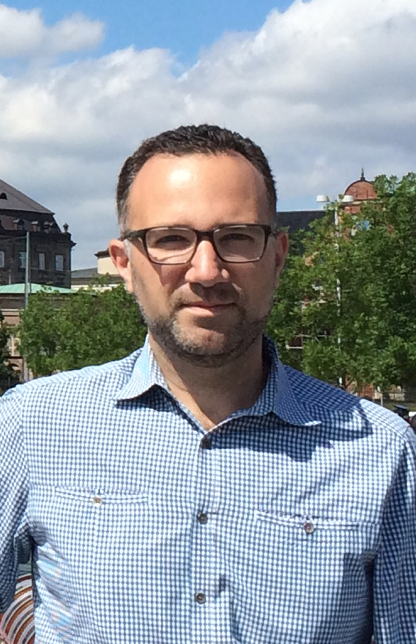Javier Gonzalez-Castillo, Ph.D.

Senior Associate Scientist
Start Date: 2007
Email: javier.gonzalez-castillo@nih.gov
Phone: (301) 594-9191
Address: Section on Functional Imaging Methods
Laboratory of Brain and Cognition
National Institute of Mental Health
Building 10, Room 1D80
10 Center Dr. MSC 1148
Bethesda, MD 20892-1148
CV: JGC_CV.pdf
In 2001, Dr. Gonzalez-Castillo received a B.S. and M.S in Electrical and Computer Engineering (Ingenieria de Telecomunicaciones) from Universidad Politecnica de Madrid, Spain. Following graduation, he spent one year as a research assistant in HP-Labs, Bristol (UK) working on electronic-commerce automation technologies; followed by three more years as an IT consultant for Hewlett-Packard Spain. Those years in IT industry helped Dr. Gonzalez-Castillo develop key skills in the areas of computer science, data analytics, and project management. In the early 2000s, Dr. Gonzalez-Castillo decided to change professional tracks and find ways to apply his engineering skills to solving biological problems. In 2004, he was awarded a Fulbright Fellowship to pursue a Ph.D. in Biomedical Engineering at Purdue University, West Lafayette, IN. During his time at Purdue, he worked on several language-related fMRI studies under the mentorship of Prof. Thomas Talavage and was awarded a Bilsland Dissertation Fellowship for his dissertation research. In December 2009, Dr. Gonzalez-Castillo graduated from Purdue and joined the Section on Functional Imaging Methods (SFIM) at the National Institute of Mental Health (NIMH) in Bethesda, MD as a post-doctoral fellow. In 2014, Dr. Gonzalez-Castillo was promoted to Staff Scientist within the Section. His research at the SFIM focuses on three main topics: development of novel fMRI analytical methods that help increase fMRI’s ability to precisely answer both clinical and basic neuroscientific questions; understanding the most dynamical aspects of functional connectivity (e.g., fast reconfigurations that happen within the constraints of individual scans), and modeling sources of non-clinical day-to-day and subject-to-subject variability in fMRI so that clinically relevant information present in fMRI scans can be isolated and more easily interpreted.
Recent Publications:
2025
BioRXiv
2025
BioRXiv
2025
Nature Reviews Neuroscience
2025
Behavior Research Methods
2024
Neuroscience of Consciousness
Recent Presentations:
August 2025
July 2025
2025: Association for the Scientific Study of Consciousness
June 2025
2025: Organization for Human Brain Mapping
June 2025
2025: Organization for Human Brain Mapping
June 2025
2025: Organization for Human Brain Mapping